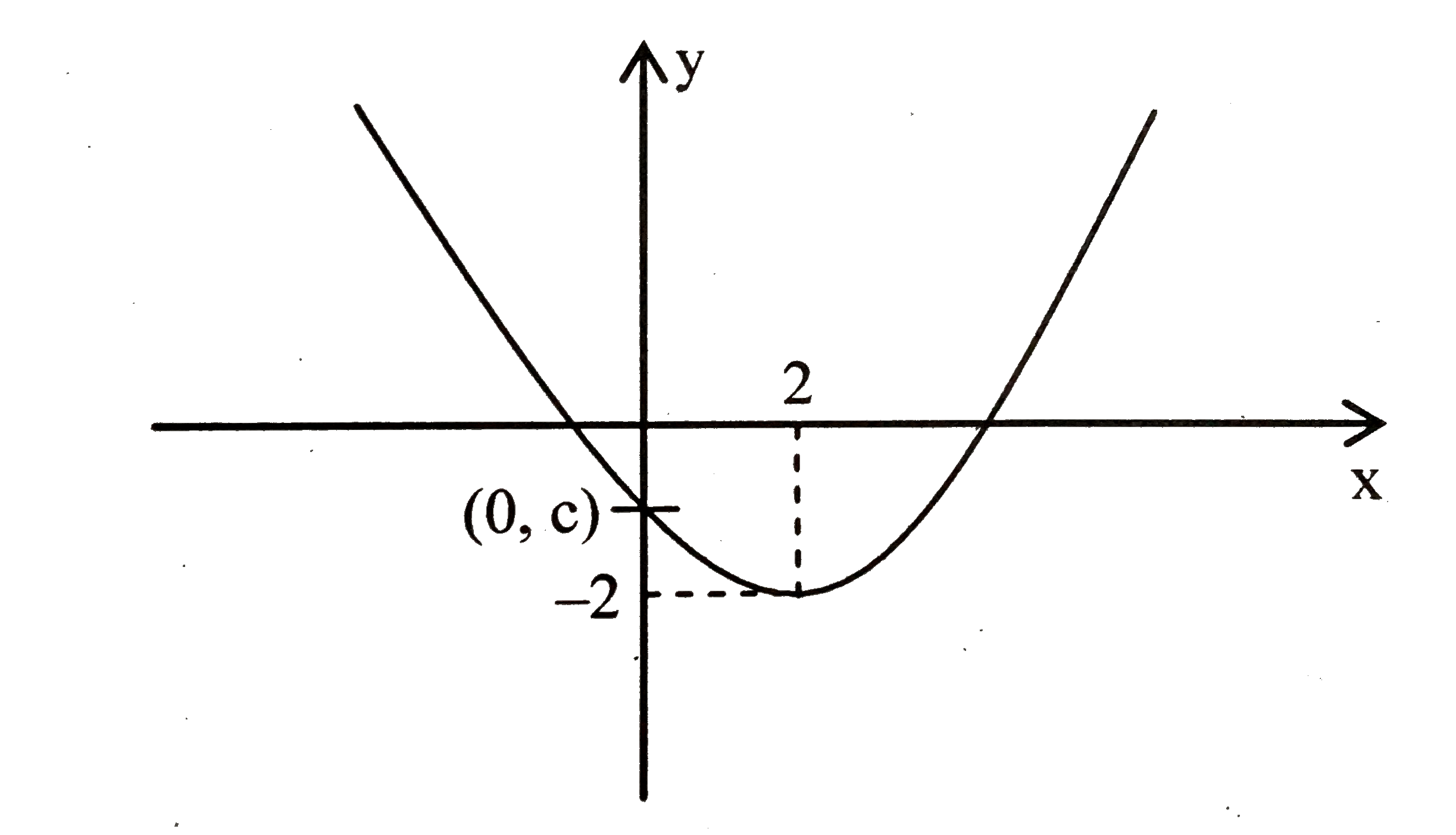Suppose a parabola y=ax2+bx+c has two x intercepts, one positive and one negative, and its vertex is (2,-2). Then which of the following is true ? (A) ab > 0 (B) bc > 0 (C) ca > 0 (D) a + b + c > 0
ab>0
bc>0
ca>0
a+b+c>0
The correct Answer is:B
The graph according to the question is

Clearly it can be observed
c<0
a>0
−ba>0⇒−b>0⇒b<0
f(1)<0⇒a+b+c<0
ab<0
ac<0
bc>0
Topper's Solved these Questions
- BOOK - KVPY PREVIOUS YEARCHAPTER - KVPYEXERCISE - Part A - Mathematics20videos
KVPY
- BOOK - KVPY PREVIOUS YEARCHAPTER - KVPYEXERCISE - Part B- Mathematics10videos
KVPY
- BOOK - KVPY PREVIOUS YEARCHAPTER - KVPYEXERCISE - PART -I MATHEMATICS20videos
KVPY
- BOOK - KVPY PREVIOUS YEARCHAPTER - KVPY 2021EXERCISE - PART II MATHEMATICS4videos
KVPY 2021
Similar Questions
The graph of the quadratic trinomial u=ax2+bx+c has its vertex at (4, -5) and two x-intercepts, one positive and one negative. Which of the following holds good? a>0 b. b<0 c. <0 d. 8a=b
View SolutionThe equation ax2+bx+c=0, if one root is negative of the other, then: (A) a =0 (B) b = 0 (C) c = 0 (D) a = c
View Solution
Knowledge Check
- Question 1 - Select One
If a,b,c belong to R,a≠0, and the quadratic equation ax2+bx+c=0 has no real roots. Then , which one of the following is correct?
A(a+b+c)a>0B(a+b+c)c<0C(a+b+c)c=0D(a+b+c)c≤0 - Question 2 - Select One
a,b,c,∈R,a≠0 and the quadratic equation ax2+bx+c=0 has no real roots, then which one of the following is not true?
Aa+b+c>0Ba(a+b+c)>0Cac(a+b+c)>0Dc(a+b+c)>0 - Question 3 - Select One or More
Suppose a,b,c are positive integers and f(x)=ax2−bx+c=0 has two distinct roots in (0,1), then
Aa≥5Bb≥5Cabc≥25Dabc≥250
It is given that the expression ax2+bx+c is positive for all x greater than 5 .Then which of the following is true.
(1) the equation ax2+bx+c=0 has equal roots
(2) a>0andb<0
(3) a>0 but b may or may not be negative
(4) c>5View SolutionIf the quadratic equation ax2+bx+c=0(a>0) has sec2θandcosec2θ as its roots, then which of the following must hold good? (a.) b+c=0 (b.) b2−4ac≥0 (c.) c ≥4a (d.) 4a+b≥0
View SolutionIf ax2+bx+c=0andcx2+bx+a=0(a,b,c∈R) have a common non-real roots, then which of the following is not true ?
View SolutionIf c>0 and 4a+c<2b then ax2−bx+c=0 has a root win which one of the following intervals a)(0,2) b)(2,3) c)(3,4) d)(-2,0)
View SolutionIf a2+b2+c2−ab−bc−ca=0, then
View Solution

